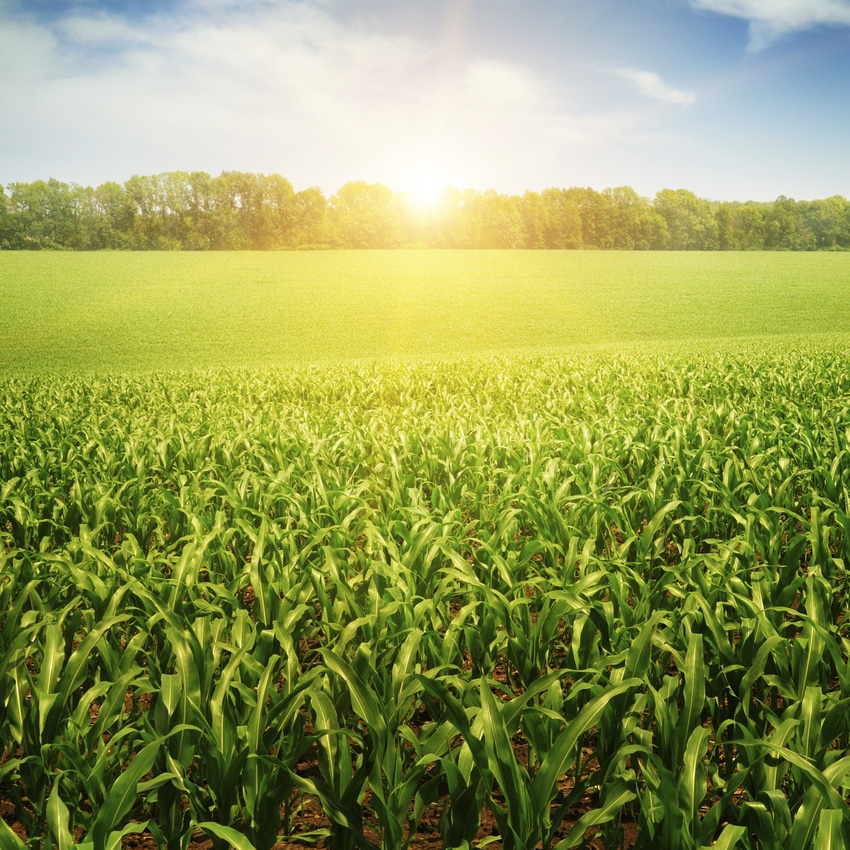Legislative Watch: USDA increases CRP rental rates; Undersecretary for farm production and conservation nominated.

The Senate Agriculture Committee this week unanimously passed the Growing Climate Solutions Act which will assist producers interested in participating in carbon markets. The bipartisan bill was introduced by Senators Debbie Stabenow, D-Mich., chairwoman of the Sente Agriculture Committee, Mike Braun, R-Ind., Lindsey Graham, R-S.C., Sheldon Whitehouse, D-R.I., and 30 additional senators.
The bill would establish a USDA program to certify credit verification services and provide technical assistance for farmers and forest owners interested in enrolling in a carbon-credit market. USDA would establish protocols for carbon markets and provide guidelines to farmers on how to qualify for carbon-credit programs. The carbon-credit program would then become "USDA certified." A 25-member advisory council of farmers, forestry industry, scientists, and representatives from private markets would be established to make recommendations to Congress and USDA. A majority of the committee members would be farmers.
"Addressing the climate crisis is one of the most urgent challenges we face, and our farmers and foresters are an important part of the solution," said Stabenow. "The bipartisan Growing Climate Solutions Act is a win-win for farmers, our economy and for our environment. Our bill is a perfect example of how we can work across the aisle and find common ground to address a critical issue affecting all of us and our future.”
Braun said, "As a Main Street entrepreneur and conservationist, I know firsthand that if we want to address our changing climate then we need to facilitate real solutions that our farmers, environmentalists, and industry can all support, which this bill accomplishes by breaking down barriers for farmers and foresters interested in participating in carbon markets so they can be rewarded for climate-smart practices."
The bill is supported by more than 60 agricultural and environmental organization, including the American Farm Bureau Federation, National Farmers Union, American Soybean Association, Ducks Unlimited, Environmental Defense Fund, National Alliance of Forest Owners, National Audubon Society, National Corn Growers Association, National Cotton Council, National Pork Producers Council, and World Wildlife Fund.
There is opposition to the bill from some environmental and progressive groups stating that the bill would "allow greenhouse gas emissions to continue unchecked and would undermine efforts to build a healthy, sustainable, and resilient food system." Those signing a letter in opposition included the Animal League Defense Fund, Food and Water Watch, Friends of the Earth and Public Justice.
USDA increases CRP rental rates
In an effort to increase participation and the number of acres in the Conservation Reserve Program (CRP), USDA is opening enrollment in the CRP with higher payment rates, new incentives, and a more targeted focus on the program’s role in climate change mitigation.
Secretary of Agriculture Tom Vilsack said, "With CRP, the United States has one of the world’s most successful voluntary conservation programs. We need to invest in CRP and let it do what it does best—preserve topsoil, sequester carbon, and reduce the impacts of climate change."
To increase CRP participation, USDA will be:
Adjusting soil rental rates.
Increasing payments for Practice Incentives from 20% to 50%.
Increasing payments for water quality practices with rates increasing from 10% to 20% for certain water quality benefiting practices available through the CRP continuous signup, such as grassed waterways, riparian buffers, and filter strips.
Establishing a CRP Grassland minimum rental rate.
The goal is to enroll 4 million new acres into CRP. Currently, there are 20.7 million acres enrolled in the program. The farm bill cap for CRP in 2021 is 25 million acres. The cap increases to 27 million acres by 2027. CRP was first authorized in the 1985 Farm Bill.
Undersecretary for farm production and conservation nominated
President Biden announced he plans to nominate Robert Bonnie to be undersecretary for farm production and conservation at USDA where he will oversee the Farm Service Agency (FSA) Natural Resources Conservation Service (NRCS), and Risk Management Agency (RMA). These agencies will be important in the administration's efforts regarding agriculture and climate change.
Vilsack said, "Robert will be committed to working with U.S. farmers and landowners to help feed Americans and the world and make climate smart practices work for them in a market-oriented way—a way that creates new streams of income, a cleaner energy future and a biobased manufacturing revolution.”
Bonnie has been a proponent of establishing a carbon bank at USDA. He co-authored a report, "Climate 21 Project," at Duke University. The report recommended a "carbon bank using the Commodity Credit Corporation to finance large-scale investments in climate smart land management practices; prioritizing climate smart practices in implementation of Farm Bill conservation programs; and identifying opportunities to invest in natural infrastructure."
Currently Bonnie is deputy chief of staff and senior advisor on climate change to Vilsack. He was co-chair of the Biden administration's transition team for USDA. Prior to joining USDA, Bonnie was at Duke University as an executive in residence at the Nicholas Institute for Environmental Policy Solutions working on conservation and environmental issues in rural America. During the Obama administration he was undersecretary of agriculture for natural resources.
Source: P. Scott Shearer, who is solely responsible for the information provided, and wholly owns the information. Informa Business Media and all its subsidiaries are not responsible for any of the content contained in this information asset.
About the Author(s)
You May Also Like



